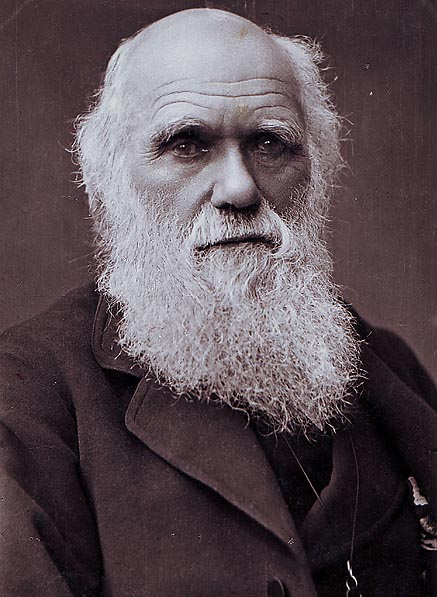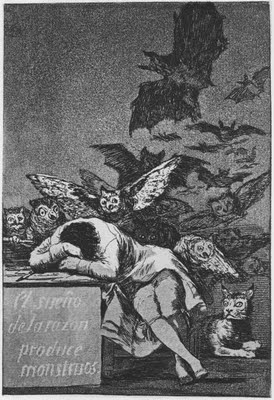As most graduate students in the humanities and social sciences know, the academic job market is crap. According to the recent Responsive Ph.D. report by the Woodrow Wilson National Fellowship Foundation (full PDF here), “as few as two out of every ten” graduates in “disciplines like history and English” will get tenure-track jobs. (The report is unfortunately vague about what other disciplines are like history and English, and it has no references for where the figure comes from, but it seems believable.)
A closely related problem is the ever-growing time-to-degree. In the fields with the worst job markets, competitions is most intense and students feel they have to put that much more effort into dissertations to be competitive. Thus, it is not uncommon for humanists to spend 8 or even 10 years in graduates school.
The Responsive Ph.D. report lays out a set of four principles and four accompanying “themes” that make up the gist its conclusions:
- “A Graduate School For Real” (theme: new paradigms) — Graduate schools and their deans should have more authority within research universities, and graduate programs should be the intellectual center of the university. Scholarship should remain at the center of graduate education (despite calls to de-emphasize it in previous reports).
- “A Cosmopolitan Doctorate” (theme: new practices) — Graduate training needs to be more relevant to the real world, with more effort put into pedagogy and into the application of academic knowledge.
- “Drawn From the Breadth of the Populace” (theme: new people) — Graduate schools need to train more people of color. Non-whites are more interested in applying their expertise in socially significant ways, so this goes hand in hand with principle 2.
- “An Assessed Excellence” (theme: new partnerships) — Graduate programs need to evaluate themselves critically, and graduate schools need to evaluate their individual programs. And these evaluations need to “have teeth” in terms of funding, and they need to connect to needs of the broader system that employs graduates as well.
The first principles is not surprising: ask graduate deans how to change the system, and the they answer “give us more authority and a bigger budget.” Emphasis on scholarly depth is a half-hearted one; graduate school still has to train the elites of the next academic generation, but the uselessness of most of graduate training for anything but learning to do (overspecialized, esoteric, socially near-useless) research is getting harder to ignore.
The second principle is where it gets everything right. That’s what I’ve been screamin’ for a while now.
The third principle is nice in principle, but lack of diversity in graduate school is a problem caused almost entirely at lower levels (i.e., lack of educational opportunity at the primary and secondary levels, and to a lesser extent in undergraduate education). Class is the real underlying issue, and I don’t think addressing the problem in terms of race is an efficient way to move forward in the long term.
The fourth principle is a good one, I think. Graduate schools ought to be more free to shrink or eliminate weak programs or programs in fields that can’t absorb enough graduates.
In response to the Responsive Ph.D. report, Yale created the “2-4 Project“, an effort to seek suggestions and then implement changes in the structure of the second through fourth years of graduate training. I think most of the proposed changes would be positive; moving the first year of teaching to the second year (concurrent with coursework, a portion of which might be moved later) is a great idea, as is reduction in the time-to-candidacy. The other aspects are fairly minor, but in my view either good or neutral changes.
GESO, the attempted grad student union that has never quite managed a credible majority, has been strongly critical of the 2-4 Project (see this brochure), especially the rushing out of grad students and encouragement to scale back dissertations. Consistent with GESO’s view of grad students as semi-professional teacher-scholars (with the same academia wide de-emphasis on the “teacher” part), they strongly resist moves to make graduate school anything but a six-year (or more) all-expenses-paid research sabbatical for the preparation of the paradigm shifting work of scholarship that is the dissertation. They want more senior faculty, less faculty teaching load, more grad student funding and less teaching requirements.
A GESO organizer had an article in the YDN on October 18 about the 2-4 Project. A sixth-year in Germanic Languages and Literature, he makes an almost unbearably pretentious statement that sums up much of what I find wrong in the culture of the academy: “Writing a major intervention in my field takes time [seven to nine years]. That is what I was brought here to do, and it is what I intend to accomplish.” “Intervening” in a field, seemingly for the sake of intervening, is the high calling of the academy. And no matter how long it takes, it’s worth it (he is, after all, one of the chosen ones, “brought here” on a mission, and entitled to his turret in the ivory tower). In defense of the lengthening time-to-degree, he cites the 2-in-10 statistic above (ignoring, of course, that for Yale Ph.D.s, it’s probably closer to 8-in-10 who end up in tenure-track jobs). He writes off non-academic careers in the usual way: they’re fine for “students who want them”, not that there’s anything wrong with that. The problem is that reforming graduate education to incorporate and validate nonacademic career paths (another part of 2-4 he and GESO oppose) is the only way to give intellectual legitimacy to anything beyond that ivory tower model of sagacity.
Another 2-4 issue was grading reform; it was opposed by GESO and, as it turns out, a majority of grad students, and it was recently rejected by the faculty. Yale grad students can get one of three passing grades: Honors, High Pass, and Pass, while the proposal would have changed it to letter grades with pluses and minuses. As it is, grades at Yale mean nothing and are not very informative in terms of feedback; grade inflation being what it is, you have to try to earn below an HP. Since grad students themselves are the only ones who are ever likely to see grad school grades, grade reform seemed like a good idea. But apparently lots of people think grade fear would make students less likely to be adventurous in their course-taking. Meh. If you’re that afraid of having your ego bruised (since that would the only repercussion of getting a C, the de facto bottom of the Yale grading scale), then you’ll get no sympathy from me.
 For the last week, I’ve been exchanging emails with curators at the
For the last week, I’ve been exchanging emails with curators at the 